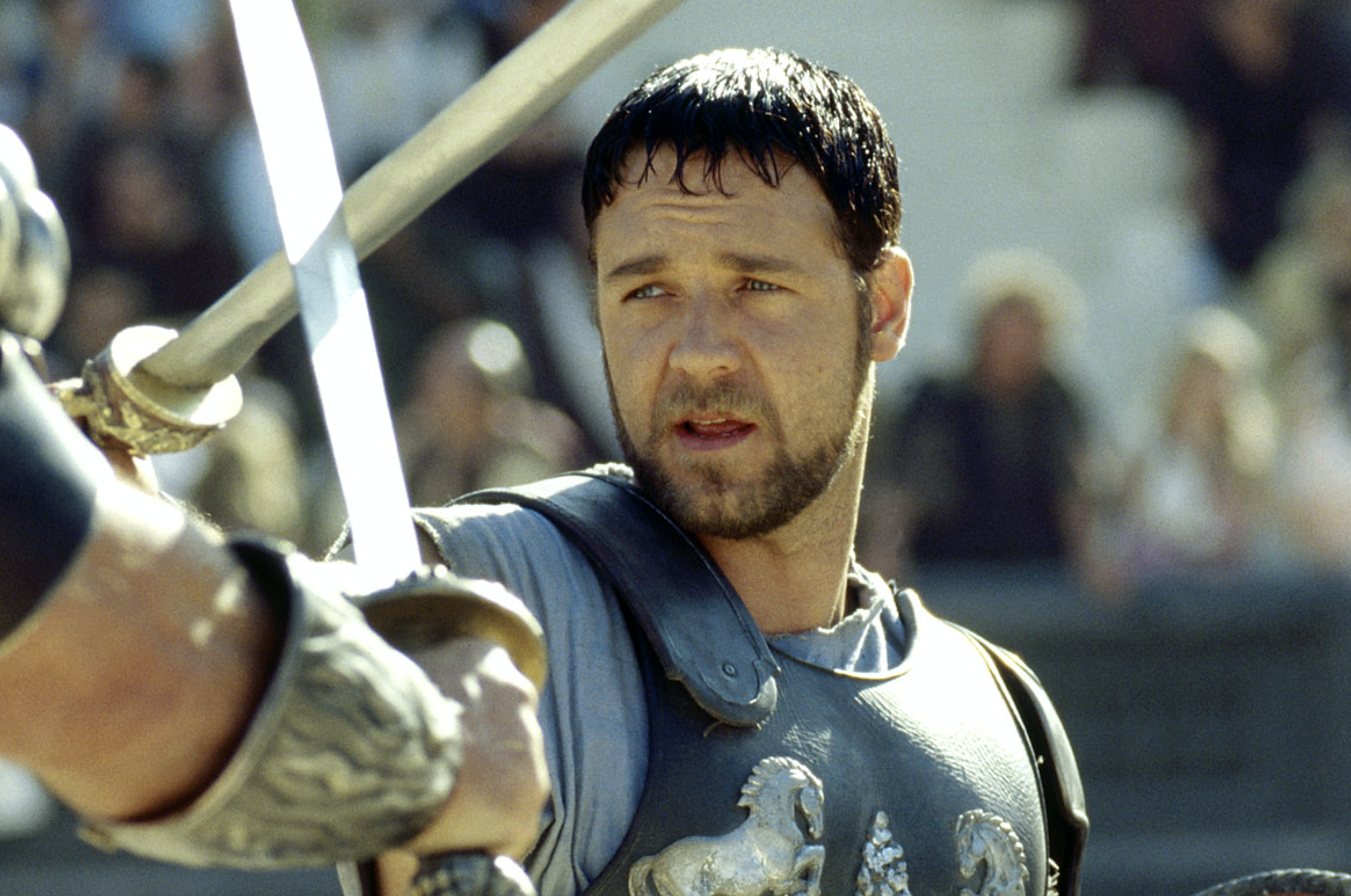Ridley Scott almost went the way of the “Joker” sequel and was toying with bringing a little song and dance to the Colosseum.
Scott told Deadline that the long-gestating “Gladiator II” was set to be a musical sequel in 2014 before he realized that the concept was “bloody silly.” However, that iteration would have had Russell Crowe reprising his role of Maximus, despite the character dying in the 2000 feature. And of course, lest we forget about the more obvious “Joker” parallel with Joaquin Phoenix formerly playing Commodus…
According to Deadline, that 2014 sequel idea involved musician Nick Cave who worked with Crowe to devise a storyline that centered on Crowe’s Maximus “being sent back to Earth by the gods to kill Jesus Christ and his followers because he was stealing their thunder.”
Yet director Scott had his own reservations.
“Nick Cave did a great job of invention and Russell was fully engaged,” Scott said. “We all were, but I was the one dragging my feet. I was like, ‘I dunno about this.’ I thought we were getting too far off the mark, and if you do that, that’s where you can lose it.”
He continued, “I was going along with the boys. I didn’t really believe in it. It got too rich and started to go to time warps, which frankly I thought was bloody silly. But the one thing I added to it was this great idea of [opening] a portal of time in death, and it would have to come from the dying soul of a dying soldier in a battlefield. Isn’t that cool? I kept it as a little silver bullet, thinking, ‘I’ll use that again somewhere.’”
And he did, to an extent, with “Gladiator II,” which premieres November 22 in theaters. The film is set 20 years after the events of the first feature, and stars Paul Mescal as the son of Crowe’s still-deceased Maximus. Mescal’s Lucius is the grandson of Marcus Aurelius (Richard Harris).
Joseph Quinn, Pedro Pascal, Connie Nielsen, and Denzel Washington also star.
“It really took us 20 years,” producer Doug Wick, who oversaw development with his partner Lucy Fisher, said to Deadline. “We had tried to develop one 10 years ago, and we weren’t happy with it. Everyone agreed that we were never going to put out some kind of money grab because the first movie had gone too well. So, these are the problems that we wrestled with, and we were very aware of the impression the first movie made. We had to honor that, but also give people a story that felt like it was worth telling on its own.”
Wick added that Scott agreed that the villain for the sequel couldn’t be the emperor again.
“We started off the first movie where the Roman general Maximus is the hero against the freedom fighters,” Wick said. “So, now we would start off with the freedom fighters and with Pedro Pascal as basically the enemy, the Roman general. That’s when we knew we had a movie, and it would be some version of a homecoming. Everything was discussed over several years, for example, the antagonist. No one wanted another emperor as the antagonist. So, then you start to talk about it: OK, what would be a great antagonist? Because the goal when you make a period film is always to make it feel like it could be a film about now. What would feel right now? Well, there’s nothing like a billionaire who’s buying influence in the capital or the world, which was the starting point for the creation of Denzel [Washington’s] Macrinus.”



